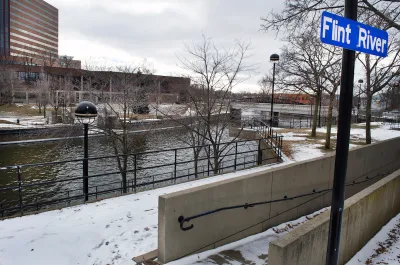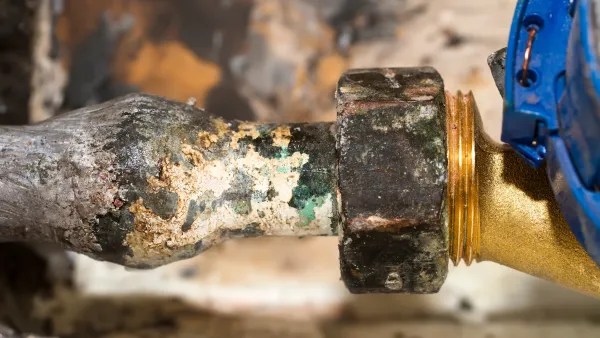A decade after the Flint crisis captured national attention, tens of thousands of US water transmission lines can still leach dangerous chemicals.

Despite the media coverage and outrage of residents in Flint, Michigan, communities around the country still face the risk of lead poisoning from corroded pipes, according to a report from Emily Kwong, Pien Huang, Rachel Carlson, and Rebecca Ramirez for NPR.
“In the last decade, the city's water quality has improved. Thousands of lead pipes in Flint have been replaced, but not all. That means that not every resident in Flint has clean, fresh water.” And the problem doesn’t stop in Flint. “A 2023 report from the EPA revealed that in 2021, lead made up 9% of the nation's service line infrastructure, representing an estimated 9.2 million pipes.”
Improvements to the 1991 Lead and Copper Rule proposed in late 2023 could finally require water systems to provide accurate information and enforce the replacement of lead pipes. However, a proposed exemption would give cities like Chicago an extension, letting them take multiple decades to replace infrastructure.
FULL STORY: 10 years after Flint, the fight to replace lead pipes across the U.S. continues

National Parks Layoffs Will Cause Communities to Lose Billions
Thousands of essential park workers were laid off this week, just before the busy spring break season.

Retro-silient?: America’s First “Eco-burb,” The Woodlands Turns 50
A master-planned community north of Houston offers lessons on green infrastructure and resilient design, but falls short of its founder’s lofty affordability and walkability goals.

Delivering for America Plan Will Downgrade Mail Service in at Least 49.5 Percent of Zip Codes
Republican and Democrat lawmakers criticize the plan for its disproportionate negative impact on rural communities.

Test News Post 1
This is a summary

Test News Headline 46
Test for the image on the front page.

Balancing Bombs and Butterflies: How the National Guard Protects a Rare Species
The National Guard at Fort Indiantown Gap uses GIS technology and land management strategies to balance military training with conservation efforts, ensuring the survival of the rare eastern regal fritillary butterfly.
Urban Design for Planners 1: Software Tools
This six-course series explores essential urban design concepts using open source software and equips planners with the tools they need to participate fully in the urban design process.
Planning for Universal Design
Learn the tools for implementing Universal Design in planning regulations.
EMC Planning Group, Inc.
Planetizen
Planetizen
Mpact (formerly Rail~Volution)
Great Falls Development Authority, Inc.
HUDs Office of Policy Development and Research
NYU Wagner Graduate School of Public Service




























